Climb High Foundation Fights Prostitution
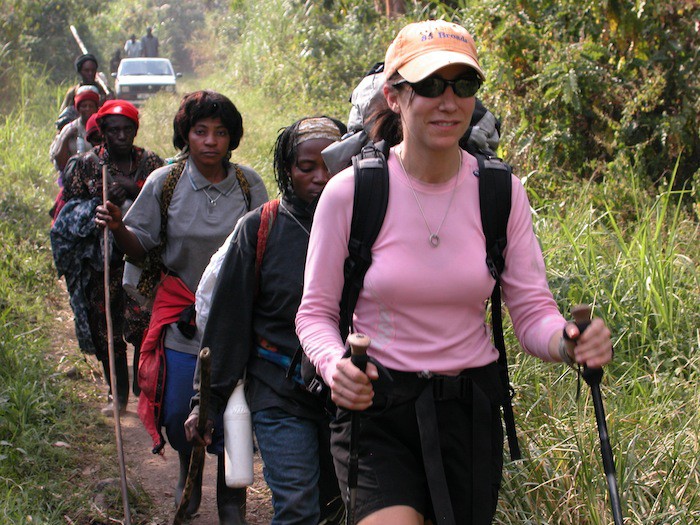
When she stood atop Mt. Stanley, at 16,763 feet above sea level, mountaineer Alison Levine conquered more than the dirt beneath her feet. She’d overcome two summits: Before she climbed Western Uganda’s tallest peak, no Ugandan woman had ever been hired as a porter. One of the only ways for women to earn an income was through prostitution. It was 2005. A decade ago, females in the mountaineering field were not a part of the culture’s gender paradigm, and local women were considered property of men. They had no rights to education, healthcare or jobs. The countrywide life expectancy was age 42, and deadly diseases such as HIV/AIDS went untreated.
Levine decided to challenge that model. She employed seven females as porters for her ascent of Mt. Stanley–and it wasn’t so easy. When Levine asked to hire female guides, the Rwenzori Mountaineering Services, the local climbing authority, explained that female porters or guides were not allowed to accompany the expedition. It was taboo, and impossible—right? No woman had ever climbed in the mountains, so—how could she now?
Levine presented a proposal for why women should be integrated into the industry, and why they should be paid, which she shared with the Mountaineering Services, village officials, and a local guide company. Ultimately, Levine was granted permission to lead a training camp for the local women to learn about climbing safety, technique and gear, followed by the first-ever climb with Ugandan women.
The historic ascent curtailed into the Climb High Foundation, which continues to lead women to new summits through skills and career development that keep them out of prostitution. We caught up with Levine to learn more about the impact of this organization and what lies ahead.
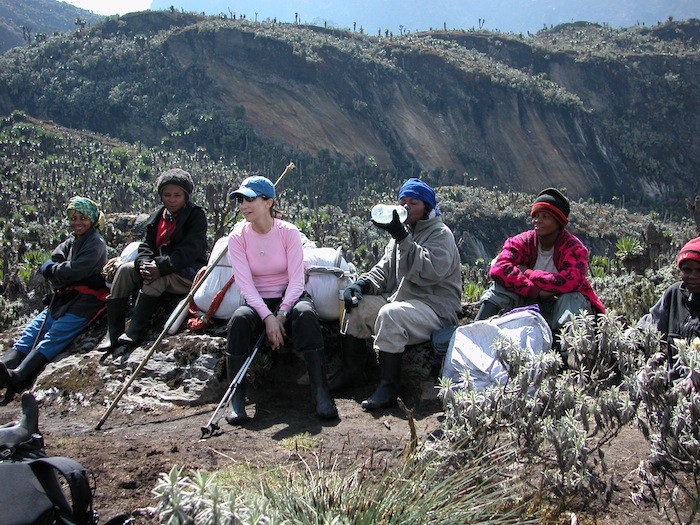
Tell us about your first trip to western Uganda, when you climbed in the Rwenzori Mountains.
I first went there in 2005. At that time, the mountains had only been accessible for a few years. They had been shut down for a long time due to the war between Uganda and the Democratic Republic of Congo (DRC). Rebels from the DRC were using the Rwenzoris as a staging area to invade Western Uganda, so that’s why the mountains were closed off for a while.
On that first trip, you also trained the local women to become your porters?
Yes, that was the first time we took local women up the mountain. I went back six months later to train more women, and I have been back several times since then. Each time I return, the number of women who show up for job training increases by leaps and bounds.
Did all seven women summit Mt. Stanley with you?
Only one woman went to the summit with us, because we did not have enough gear and equipment with us to take more women up. (They needed crampons, ice axes, etc.).
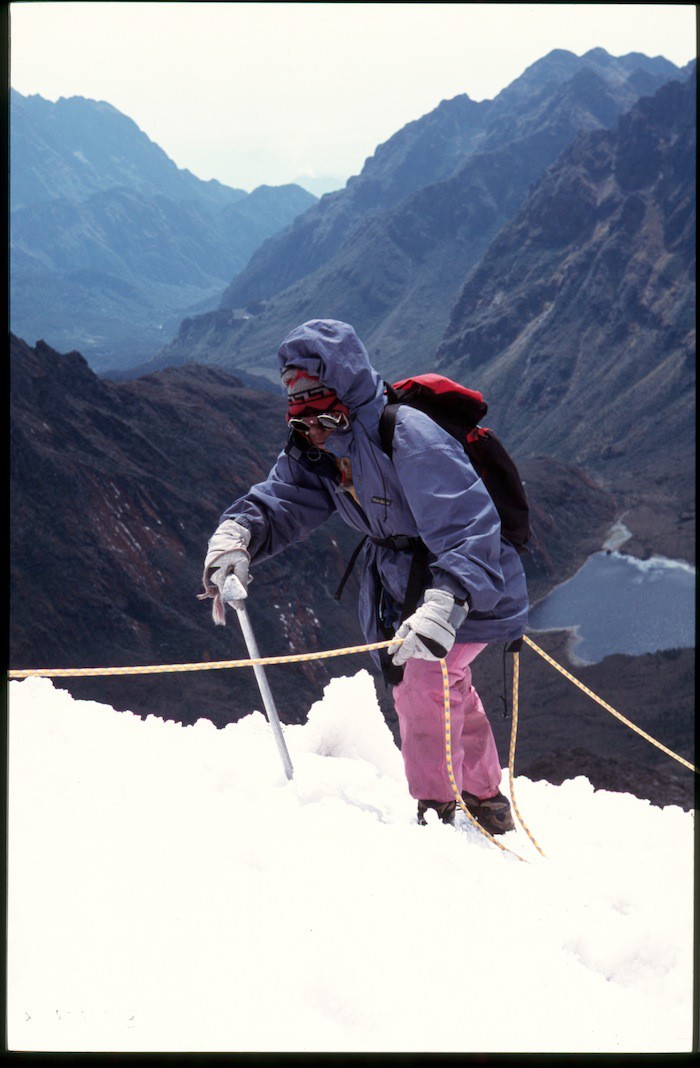
Photo courtesy of Harry Kikstra.
How many women has the Climb High Foundation taught, to date?
There are dozens and dozens of women in these jobs now. I probably had 60 women show up looking for work on the mountain when I was last there two years ago.
But, I can’t put a precise number on it, because the local women we have trained over the years continue to train other local women. Now, there are plenty of young women who are getting these jobs that I have never met.
What inspired you to start the foundation?
I was shocked when I learned that women in this area had no rights. They could not own homes or land. They had no access to healthcare or education. Local women told me that they pray for war, because when there is war, then there are more soldiers around, and then they can earn more money as prostitutes.
Because of HIV/AIDS and other diseases, the average life expectancy was only forty-two. This sounded like a pretty raw deal to me. I thought, Well, just because things have always been this way doesn’t mean that things should stay this way. Maybe it’s time for things to change in western Uganda!
We got the ball rolling.
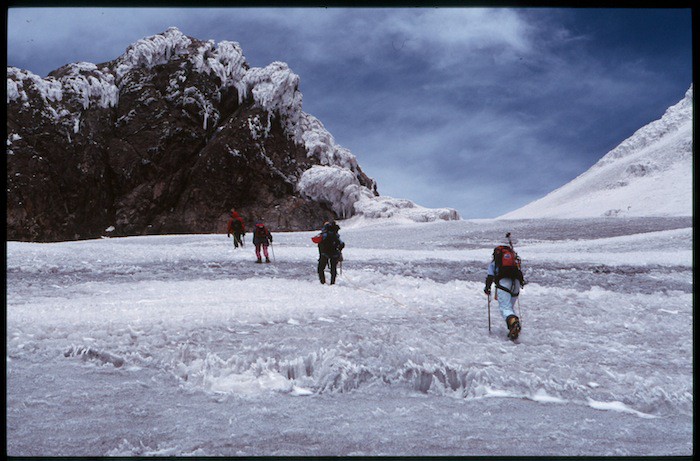
Photo courtesy of Harry Kikstra.
What was the reaction of the locals before and after you took the first group of women into the mountains?
At first, the locals were pretty much freaking out about women going up the mountain. There were male porters who really kept their distance the first time we took them all up together. But, after a few days, the men and women started to interact more. We could hear them talking and laughing at night.
After the trek, once the women returned to the village, they (the women) were celebrated by the locals. People stood on the side of the road and clapped as they walked back into town upon their return from the mountain. They were getting high-fives all over the place (this was before the fist-bump came into fashion over there).
Is the culture now open to females working in the mountains? Or, is there still resistance to the idea?
The culture is much more open than it was before, but there are still people who hold on to the old school way of thinking and the old traditions and cultural beliefs. I think that as time goes on, and as people become more educated and more exposed to the outside world, they realize that women’s access to the mountains is a positive thing.
But every time some kind of tragedy (floods, Ebola deaths, mudslides, etc.) hits this area, there are some who believe that it’s due to the gods being angry about local women being allowed to climb the mountain—which is ridiculous, of course, but old beliefs die hard.
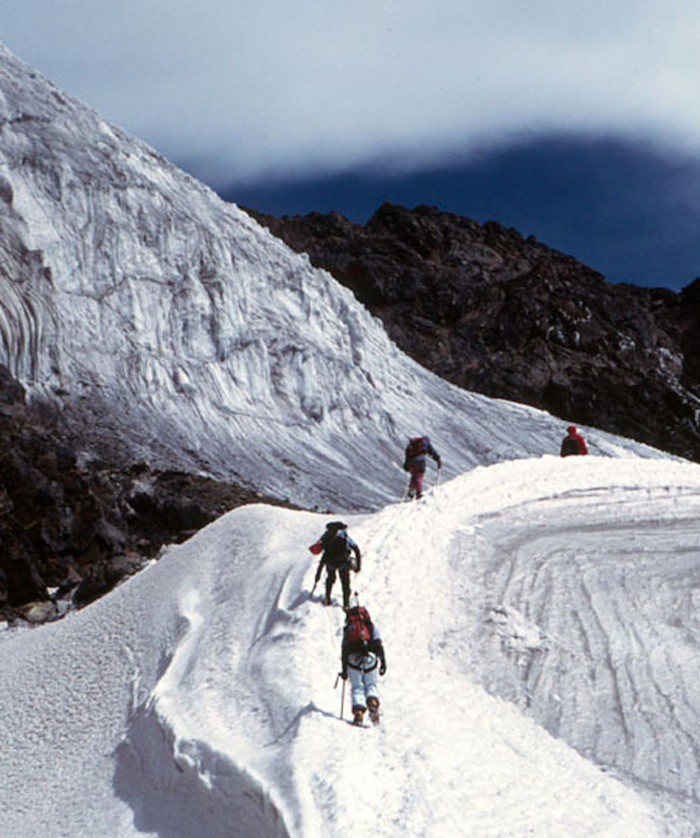
Photo courtesy of Harry Kikstra.
Have the gender roles leveled out? How has Climb High Foundation played a role in the shift?
The situation for women has improved tremendously. As a result of the Climb High Foundation’s work, dozens and dozens of women are regularly employed as porters and trekking guides in the Rwenzori Mountains, and they earn the same wage that men earn.
The first woman to summit Uganda’s highest peak was able to earn enough money to buy a store, so she is now a business owner. And Rwenzori Mountaineering Services now has a woman representative on their board of directors. Now that more women are earning a sustainable living wage, more children in this area are going to school now, too.
When you proposed that women should be mountaineering professionals, how did the discussion go with the community?
The guys at Rwenzori Mountaineering Services and the village officials were actually pretty supportive. They realized that if local women were earning money alongside the local men, the entire community would benefit, because there would be more capital flowing into the region, and this would lead to a better quality of life for everyone in the area.
It’s really no secret that when men in this area are earning money, a lot of it goes toward alcohol and prostitutes. But, when women are earning money it goes toward putting food on the table (well, the ground—as they don’t really use tables there) and taking care of the children.
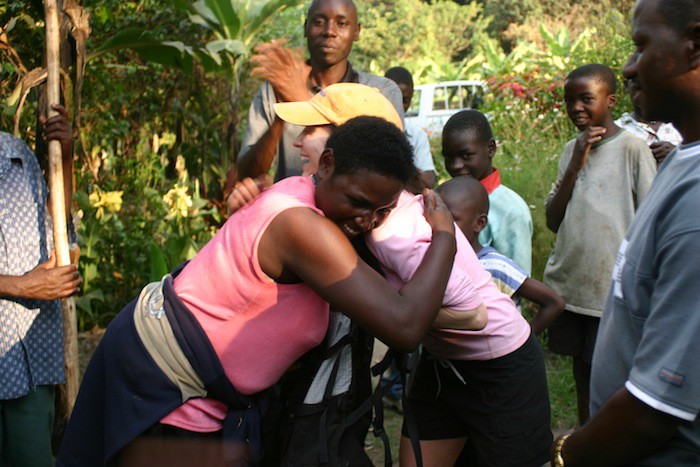
Now, how have the rights and life circumstances of Ugandan women changed?
The Climb High Foundation has trained numerous women to work as porters and trekking guides in the Rwenzori Mountains. These women are now regularly employed as mountain workers, and they’re able earn a sustainable living wage.
Women now have access to healthcare and education, which was previously out of reach for most people in this area.
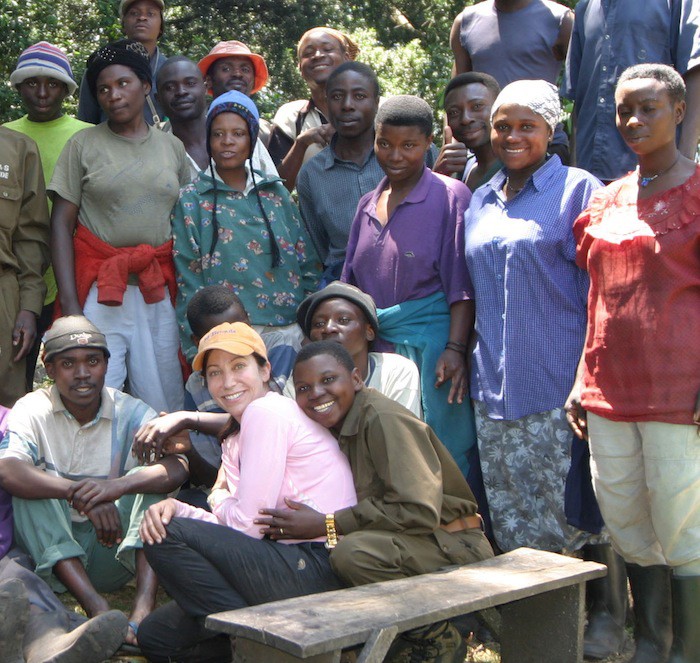
What lies ahead for the foundation?
At some point in the future I would like to expand to other countries, but right now I don’t have the bandwidth. I am laser-focused on the Glass Ceiling movie at the moment. Once that project is done, we’ll see.
How can people get involved?
The best way to help women over there is to go trek or climb the Rwenzori Mountains. When you arrive at Rwenzori Mountaineering Services headquarters (which is where you will be assigned porters and guides), insist on women being included.
The more people ask for female guides and porters, the better. We need to remind the men who are running the show that sexism needs to die a quick death. The women are definitely physically strong enough to work these jobs. It’s simply traditional sexism that has been holding them back.
–Photos courtesy of Alison Levine unless otherwise noted


LET'S GET SOCIAL